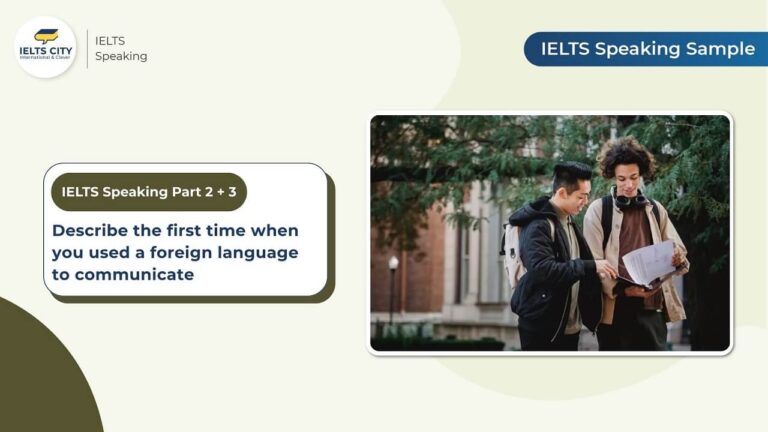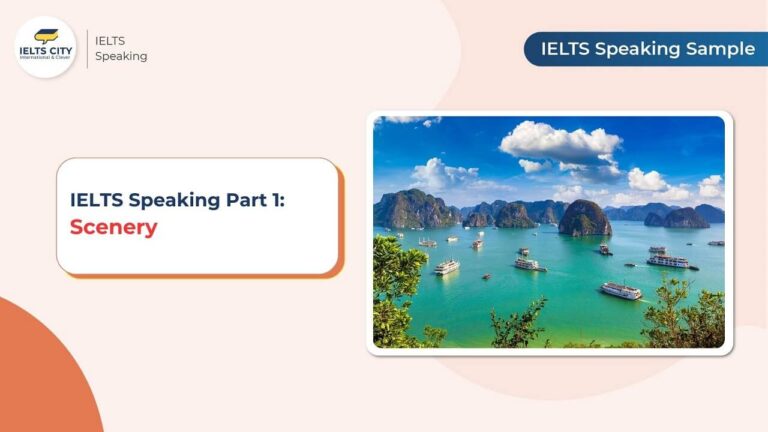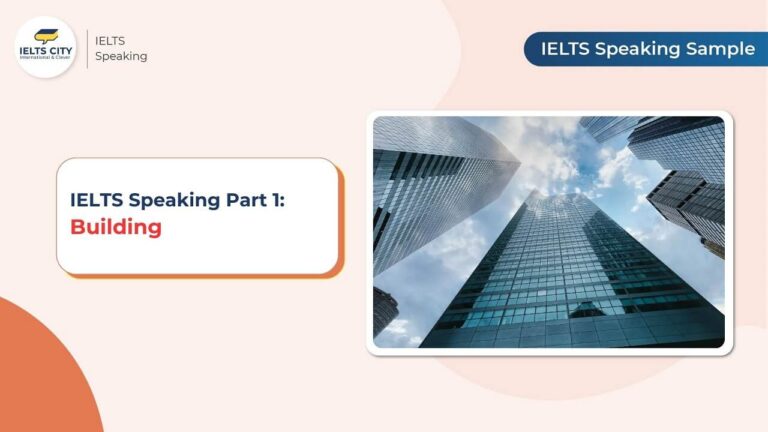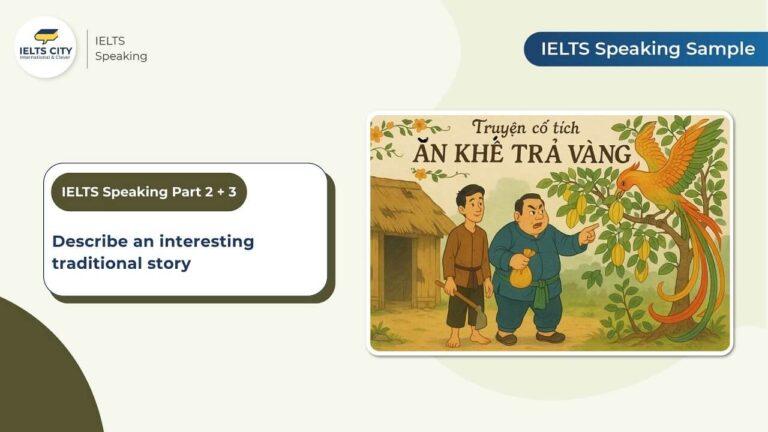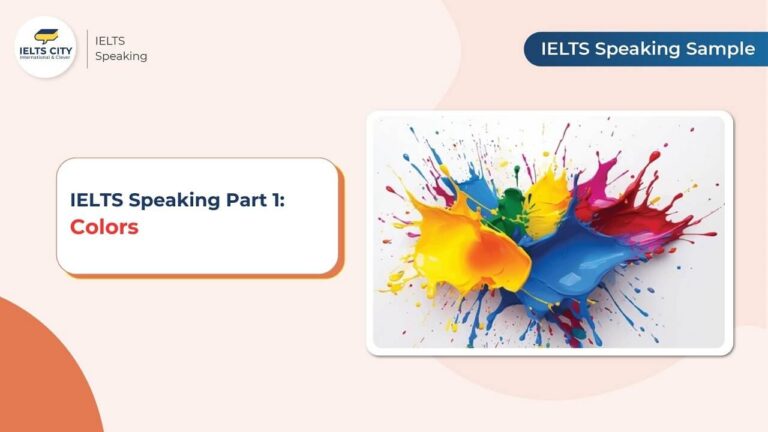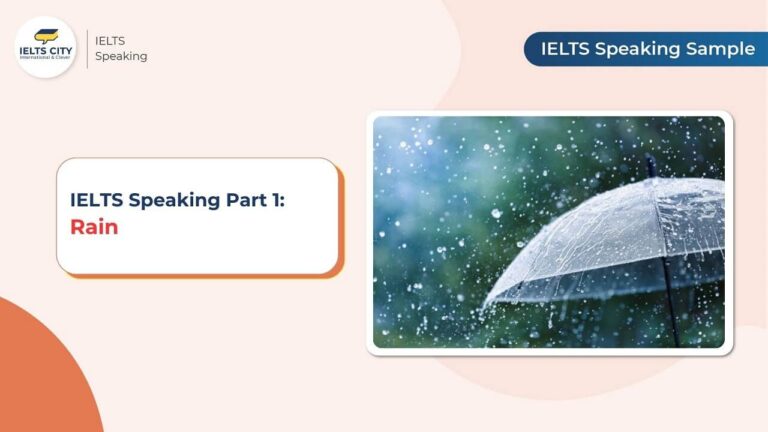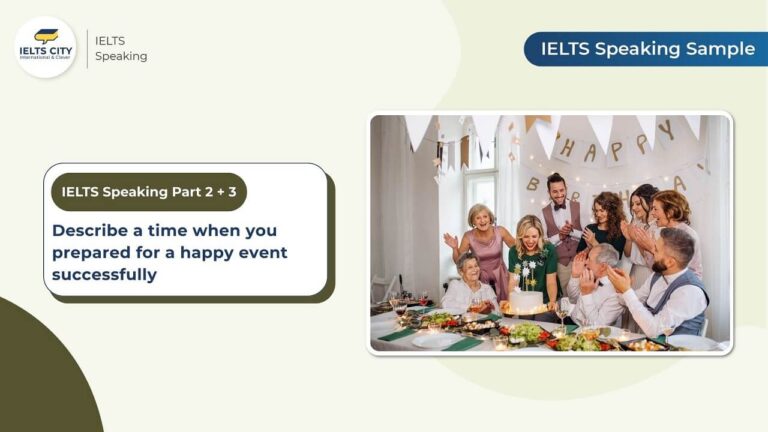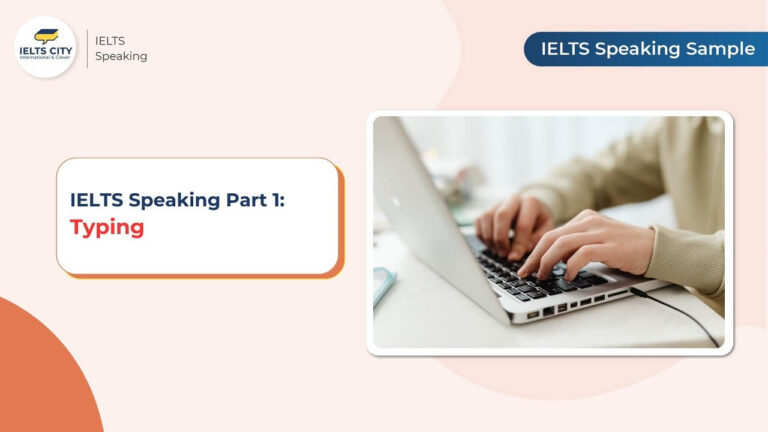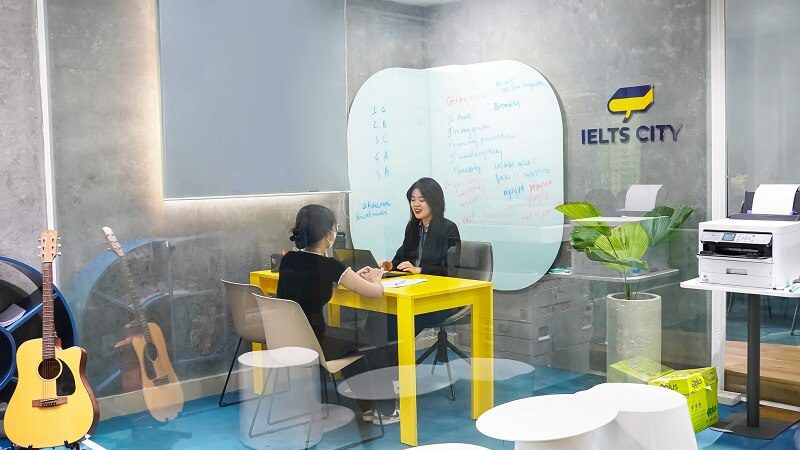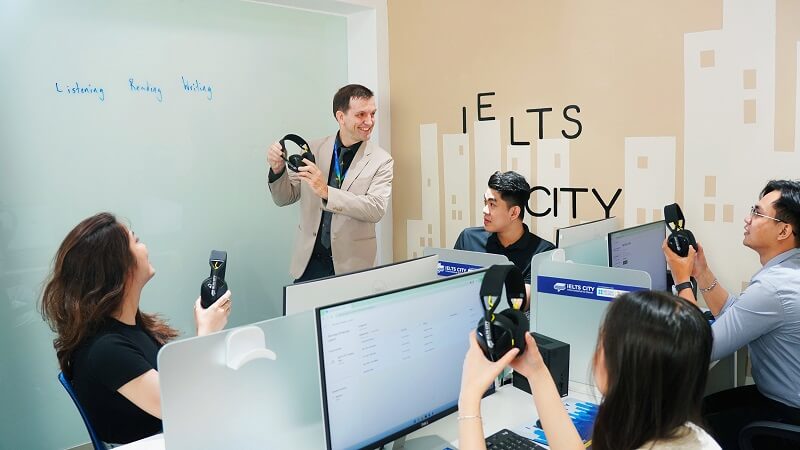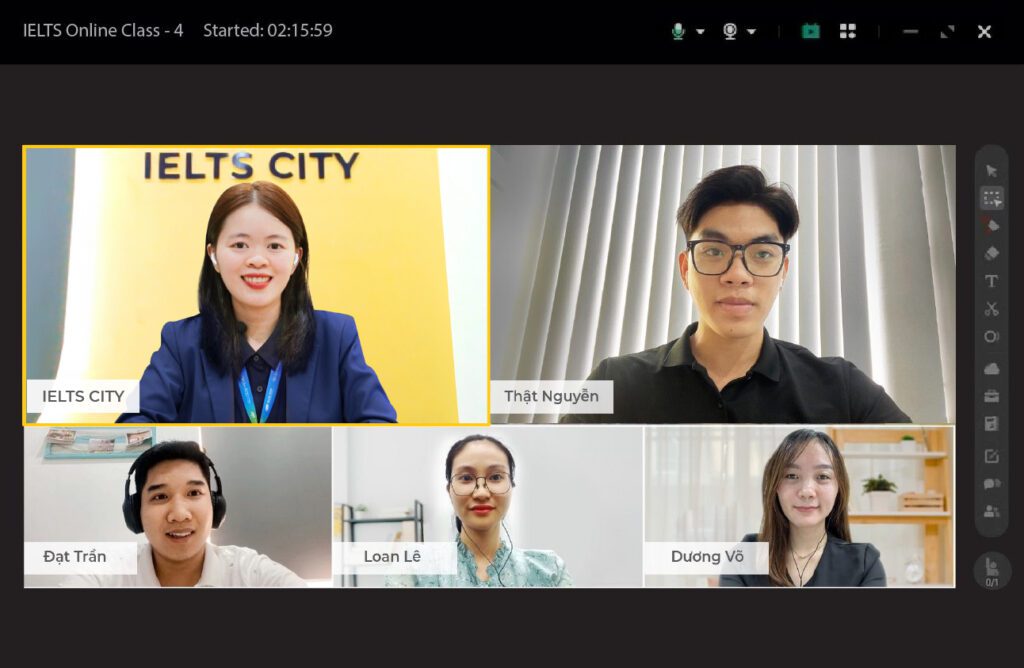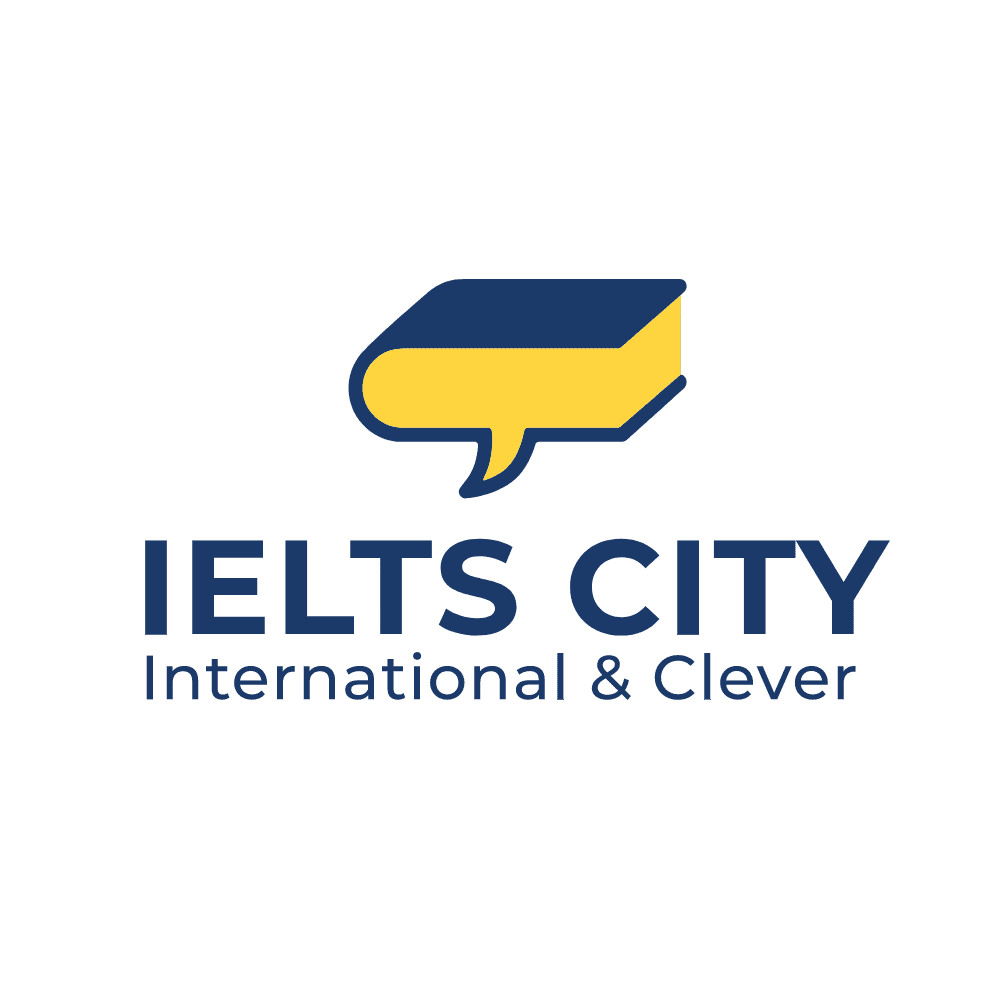Education (Giáo dục) là chủ đề rất phổ biến trong phần thi IELTS Speaking Part 3. Tùy quen thuộc nhưng không ít thí sinh gặp tình trạng bí ý tưởng và không biết diễn đạt ý như thế nào cho hay. Tại bài viết này, IELTS CITY sẽ tổng hợp đầy đủ các câu hỏi IELTS Speaking Part 3 chủ đề Education kèm theo từ vựng và câu trả lời mẫu chi tiết nhất nhé!
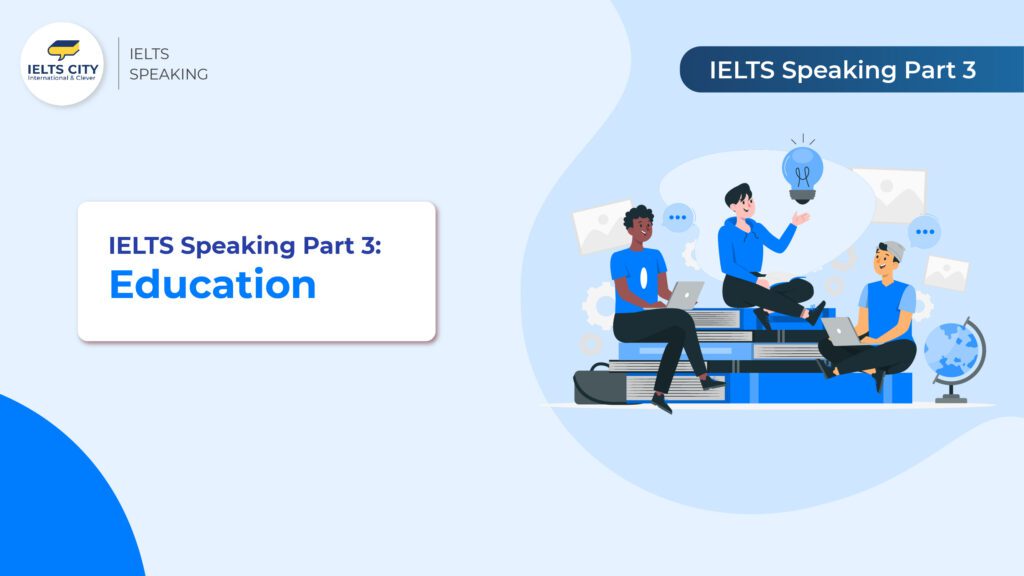
Nội dung chính
ToggleCác câu hỏi IELTS Speaking Part 3 về Education
- How has the education system in your country evolved over the years?
- What do you think are the key differences between the education system in your country and that in other countries?
- Can you describe the role of teachers in the education system in your country?
- How do you think technology has impacted education in recent years?
- What are the advantages of studying online courses compared to traditional in: person classes?
- What challenges do students face when studying online, and how can they overcome them?
- In your opinion, is a college or university degree still as important as it used to be, or are there other alternatives to acquiring knowledge and skills?
- Do you think that standardized testing accurately reflects a student’s abilities and potential?
- What is the importance of extracurricular activities in a student’s development and education?
- How can schools and universities better prepare students for the real world and the job market?
- What do you think about the current grading system in schools? Is it fair to all students?
- In your view, what is the impact of social and economic factors on a person’s access to quality education?
- How can parents support their children’s education effectively without putting too much pressure on them?
- Should students have the freedom to choose their own subjects and courses of study, or should it be more structured and determined by the education system?
- How do you feel about the idea of lifelong learning, and how can it benefit individuals and society as a whole?
- What are some strategies that can help students manage their time and workload effectively in school or university?
- In your opinion, how can the education system better address the needs of students with disabilities or special needs?
- Do you think there’s a significant difference between public and private education in terms of quality and opportunities?
- How important is cultural diversity and inclusion in educational institutions, and how can it be promoted?
- What is the role of the government in ensuring equal access to quality education for all citizens in your country?
Tham khảo:
Từ vựng IELTS về Education
- Education system: Hệ thống giáo dục
- Curriculum: Chương trình học
- Academic: Học thuật
- Vocational education: Giáo dục nghề nghiệp
- Distance learning: Học từ xa
- E-learning: Học trực tuyến
- Extracurricular activities: Hoạt động ngoại khóa
- Teacher – student ratio: Tỷ lệ giáo viên – sinh viên
- Classroom management: Quản lý lớp học
- Standardized testing: Kiểm tra chuẩn hóa
- Grading system: Hệ thống điểm
- Tuition fees: Học phí
- Scholarships: Học bổng
- Academic performance: Thành tích học tập
- Critical thinking: Tư duy phản biện
- Literacy: Trình độ đọc viết
- Plagiarism: Đạo văn
- Academic integrity: Tính trung thực học thuật
- Research skills: Kỹ năng nghiên cứu
- Student loans: Vay tiền học
- School facilities: Cơ sở học tập
- Inclusive education: Giáo dục toàn diện
- Lifelong learning: Học suốt đời
- Multicultural education: Giáo dục đa văn hóa
- Parent – teacher conferences: Cuộc họp giữa phụ huynh và giáo viên
Học thêm: Từ vựng IELTS về chủ đề Education
Câu trả lời mẫu IELTS Speaking Part 3 về Education
How has the education system in your country evolved over the years?
Hệ thống giáo dục ở nước bạn đã phát triển như thế nào trong những năm qua?
Gợi ý trả lời:
- Bắt đầu với mô tả sự phát triển của hệ thống giáo dục từ quá khứ đến hiện tại.
- Nêu rõ những cải cách quan trọng và thay đổi mà hệ thống giáo dục đã trải qua.
- Đề cập đến vai trò của công nghệ, chương trình học mới và phương pháp giảng dạy hiện đại.
Câu trả lời mẫu: The education system in my country has undergone significant changes in recent decades. The focus has shifted from traditional rote learning to a more interactive and skill: based approach. This evolution aims to better prepare students for the modern workforce.
What do you think are the key differences between the education system in your country and that in other countries?
Bạn nghĩ điểm khác biệt chính giữa hệ thống giáo dục ở nước bạn và hệ thống giáo dục ở các nước khác là gì?
Gợi ý trả lời:
- So sánh hệ thống giáo dục của quốc gia của bạn với hệ thống ở các quốc gia khác.
- Bàn về sự khác biệt trong cách xây dựng chương trình học, phương pháp giảng dạy, hình thức kiểm tra và hỗ trợ tài chính.
Câu trả lời mẫu: One major difference is the emphasis on standardized testing in my country, while some other nations prioritize a more holistic and project: based learning approach. Additionally, the duration of schooling and the grading systems may vary.
Can you describe the role of teachers in the education system in your country?
Bạn có thể mô tả vai trò của giáo viên trong hệ thống giáo dục ở nước bạn không?
Gợi ý trả lời:
- Đề cập đến vai trò của giáo viên trong quá trình giảng dạy và hỗ trợ học sinh.
- Nêu rõ tầm quan trọng của giáo viên trong việc phát triển kiến thức và đạo đức cho học sinh.
Câu trả lời mẫu: In my country, teachers play a crucial role in imparting knowledge and values to students. They are responsible for creating a positive and engaging learning environment. Moreover, teachers often act as mentors and guides, helping students make informed career choices.
How do you think technology has impacted education in recent years?
Bạn nghĩ công nghệ đã tác động đến giáo dục như thế nào trong những năm gần đây?
Gợi ý trả lời:
- Thảo luận về tác động của công nghệ trong giáo dục, như sử dụng máy tính, internet, và ứng dụng học trực tuyến.
- Nêu rõ lợi ích và thách thức mà công nghệ mang lại cho học sinh và giáo viên.
Câu trả lời mẫu: Technology has had a profound impact on education by making learning more accessible and engaging. Online platforms and educational apps have made it easier to access resources. However, it’s important to strike a balance between technology and traditional teaching methods.
What are the advantages of studying online courses compared to traditional in-person classes?
Ưu điểm của việc học các khóa học trực tuyến so với các lớp học trực tiếp truyền thống là gì?
Gợi ý trả lời:
- Liệt kê các lợi ích của học trực tuyến, như linh hoạt về thời gian, tiết kiệm chi phí, và tiếp cận tài liệu dễ dàng.
- Đề cập đến các điểm mạnh của học truyền thống, chẳng hạn như tương tác xã hội và giám sát giáo viên.
Câu trả lời mẫu: Online courses offer flexibility and convenience, allowing students to learn at their own pace. They can access a wider range of resources and interact with experts from around the world. However, they may lack the interpersonal interaction that traditional classes provide.
What challenges do students face when studying online, and how can they overcome them?
Học sinh gặp phải những thách thức gì khi học trực tuyến và làm thế nào để vượt qua chúng?
Gợi ý trả lời:
- Nêu rõ các khó khăn, ví dụ như tự quản lý thời gian và cảm giác cô đơn.
- Đề xuất cách giải quyết, như thiết lập lịch trình cố định và tham gia các cộng đồng học trực tuyến.
Câu trả lời mẫu: Online students often struggle with self: discipline and motivation. They may also miss the social aspect of traditional classes. To overcome these challenges, setting a structured schedule, staying connected with peers and instructors, and seeking support when needed can be helpful.
In your opinion, is a college or university degree still as important as it used to be, or are there other alternatives to acquiring knowledge and skills?
Theo bạn, bằng cấp cao đẳng, đại học có còn quan trọng như xưa không, hay có những lựa chọn thay thế nào khác để tiếp thu kiến thức, kỹ năng?
Gợi ý trả lời:
- Thảo luận về giá trị của bằng cử nhân và bằng thạc sĩ trong thời đại hiện đại.
- Đề cập đến sự phát triển của các tùy chọn khác như học trực tuyến, khóa học ngắn hạn, và khám phá công việc sớm.
Câu trả lời mẫu: While a college or university degree remains valuable, there are now alternative pathways like vocational training, apprenticeships, and online certifications. The importance of a degree depends on the field of study and career goals.
Do you think that standardized testing accurately reflects a student’s abilities and potential?
Bạn có nghĩ rằng bài kiểm tra tiêu chuẩn phản ánh chính xác khả năng và tiềm năng của học sinh?
Gợi ý trả lời:
- Thảo luận về ưu điểm và hạn chế của kiểm tra chuẩn hóa trong đánh giá học sinh.
- Đề xuất phương pháp đánh giá khác nhau như dự án và đánh giá liên quan đến thực tế.
Câu trả lời mẫu: Standardized testing has its limitations as it doesn’t always reflect a student’s true potential or abilities. It can be influenced by factors like test anxiety or socioeconomic background. Therefore, it’s just one aspect of a student’s overall performance.
What is the importance of extracurricular activities in a student’s development and education?
Tầm quan trọng của hoạt động ngoại khóa đối với sự phát triển và giáo dục của học sinh là gì?
Gợi ý trả lời:
- Nêu rõ vai trò của hoạt động ngoại khóa trong việc phát triển kỹ năng xã hội, lãnh đạo và tư duy sáng tạo.
- Đề cập đến lợi ích của cân bằng giữa học hành và hoạt động ngoại khóa.
Câu trả lời mẫu: Extracurricular activities play a crucial role in a student’s development by fostering skills like teamwork, leadership, and time management. They provide a well: rounded education and can enhance a student’s social and personal growth.
How can schools and universities better prepare students for the real world and the job market?
Làm thế nào các trường học và trường đại học có thể chuẩn bị tốt hơn cho sinh viên về thế giới thực và thị trường việc làm?
Gợi ý trả lời:
- Bàn về cách nâng cao chương trình học để phù hợp với nhu cầu của thị trường lao động.
- Đề xuất việc cung cấp kỹ năng mềm và trải nghiệm thực tế trong giáo dục.
Câu trả lời mẫu: Schools and universities can focus on practical skills, internships, and real: world experiences. They should also provide career counseling and opportunities for networking with industry professionals to better prepare students for the job market.
What do you think about the current grading system in schools? Is it fair to all students?
Bạn nghĩ gì về hệ thống chấm điểm hiện tại ở trường học? Có công bằng cho tất cả học sinh không?
Gợi ý trả lời:
- Thảo luận về cách hệ thống đánh giá hiện tại, bao gồm việc sử dụng điểm số và giảng viên dùng phần mềm xác định điểm.
- Đề cập đến cách cải thiện tính công bằng trong việc đánh giá, như đánh giá dựa trên nhiều yếu tố hơn.
Câu trả lời mẫu: The current grading system has its flaws as it can create unnecessary competition and stress. Some argue that it may not be entirely fair to all students, especially those who don’t perform well in traditional exams. Alternative assessment methods should be considered.
In your view, what is the impact of social and economic factors on a person’s access to quality education?
Theo quan điểm của bạn, tác động của các yếu tố kinh tế và xã hội đến khả năng tiếp cận nền giáo dục có chất lượng của một người là gì?
Gợi ý trả lời:
- Bàn về tác động của yếu tố xã hội và kinh tế đến quyền truy cập vào giáo dục chất lượng.
- Nêu rõ các vấn đề liên quan đến sự bất bình đẳng giáo dục và đề xuất cách cải thiện tình hình.
Câu trả lời mẫu: Social and economic factors can significantly impact a person’s access to quality education. Financial constraints, location, and family background can limit opportunities. Ensuring equal access to quality education for all is essential to address these disparities.
How can parents support their children’s education effectively without putting too much pressure on them?
Làm thế nào cha mẹ có thể hỗ trợ việc học tập của con mình một cách hiệu quả mà không gây quá nhiều áp lực cho con?
Gợi ý trả lời:
- Đề xuất cách cha mẹ có thể tạo môi trường học tập tích cực mà không áp đặt quá nhiều áp lực.
- Thảo luận về vai trò của sự động viên và hỗ trợ từ phía gia đình.
Câu trả lời mẫu: Parents can support their children’s education by showing interest, providing a conducive learning environment, and offering guidance without excessive pressure. Encouraging a love for learning and allowing children to make their own choices can also be effective.
Should students have the freedom to choose their own subjects and courses of study, or should it be more structured and determined by the education system?
Học sinh có nên được tự do lựa chọn môn học và khóa học của riêng mình hay nó nên được tổ chức và xác định chặt chẽ hơn bởi hệ thống giáo dục?
Gợi ý trả lời:
- Bàn về lợi ích và hạn chế của việc tùy chọn môn học.
- Đề xuất mức độ tự do cần có và vai trò của sự hướng dẫn từ hệ thống giáo dục.
Câu trả lời mẫu: There should be a balance. Students should have some freedom to choose their subjects and courses to foster their interests and passions. However, there should also be a structured curriculum to ensure a well: rounded education.
How do you feel about the idea of lifelong learning, and how can it benefit individuals and society as a whole?
Bạn cảm thấy thế nào về ý tưởng học tập suốt đời và nó có thể mang lại lợi ích như thế nào cho các cá nhân và toàn xã hội?
Gợi ý trả lời:
- Thảo luận về ý tưởng học suốt đời và tầm quan trọng của việc tiếp tục học hành sau khi tốt nghiệp.
- Đề cập đến lợi ích cá nhân và tác động tích cực lên xã hội.
Câu trả lời mẫu: Lifelong learning is essential in today’s rapidly changing world. It allows individuals to adapt to new challenges and stay relevant in their careers. It also benefits society by promoting innovation and a skilled workforce.
What are some strategies that can help students manage their time and workload effectively in school or university?
Một số chiến lược nào có thể giúp sinh viên quản lý thời gian và khối lượng công việc một cách hiệu quả ở trường phổ thông hoặc đại học?
Gợi ý trả lời:
- Đề xuất cách quản lý thời gian, lập kế hoạch và ưu tiên công việc.
- Bàn về cách đối phó với căng thẳng và giữ thăng bằng trong cuộc sống học tập.
Câu trả lời mẫu: Students can manage their time effectively by creating a study schedule, setting goals, and prioritizing tasks. They should also avoid procrastination and seek help when needed. Time management skills are crucial for academic success.
In your opinion, how can the education system better address the needs of students with disabilities or special needs?
Theo bạn, làm thế nào hệ thống giáo dục có thể giải quyết tốt hơn nhu cầu của học sinh khuyết tật hoặc học sinh có nhu cầu đặc biệt?
Gợi ý trả lời:
- Nêu rõ tầm quan trọng của tích hợp hóa trong giáo dục và hỗ trợ cá nhân hóa.
- Đề xuất cách cải thiện việc cung cấp dịch vụ và hỗ trợ cho học sinh có nhu cầu đặc biệt.
Câu trả lời mẫu: The education system should provide inclusive environments and tailored support for students with disabilities or special needs. This includes trained educators, accessible facilities, and individualized education plans to meet each student’s unique requirements.
Do you think there’s a significant difference between public and private education in terms of quality and opportunities?
Bạn có nghĩ rằng có sự khác biệt đáng kể giữa giáo dục công và tư về chất lượng và cơ hội không?
Gợi ý trả lời:
- Bàn về sự khác biệt giữa giáo dục công lập và tư nhân, bao gồm chất lượng giảng dạy, cơ hội và chi phí.
- Đề xuất cách cải thiện sự tương đương trong giáo dục.
Câu trả lời mẫu: There can be differences in resources and opportunities between public and private education, but it’s not always a direct correlation with quality. Quality can vary within both sectors. Public schools often provide a more diverse environment, while private schools may offer more personalized attention.
How important is cultural diversity and inclusion in educational institutions, and how can it be promoted?
Sự đa dạng và hòa nhập văn hóa quan trọng như thế nào trong các cơ sở giáo dục và làm thế nào để thúc đẩy nó?
Gợi ý trả lời:
- Thảo luận về lợi ích của đa dạng văn hóa và tích hợp xã hội trong giáo dục.
- Đề xuất cách giáo dục có thể thúc đẩy tích hợp và sự đa dạng.
Câu trả lời mẫu: Cultural diversity and inclusion are vital in educational institutions. They foster understanding, tolerance, and global awareness. To promote diversity, schools should encourage multicultural programs, recruit diverse staff, and create an inclusive curriculum.
What is the role of the government in ensuring equal access to quality education for all citizens in your country?
Vai trò của chính phủ trong việc đảm bảo quyền tiếp cận bình đẳng với nền giáo dục có chất lượng cho mọi công dân ở nước bạn là gì?
Gợi ý trả lời:
- Nêu rõ trách nhiệm của chính phủ trong việc đảm bảo quyền truy cập vào giáo dục chất lượng cho tất cả công dân.
- Thảo luận về các chính sách và biện pháp mà chính phủ có thể áp dụng để đạt được mục tiêu này.
Câu trả lời mẫu: The government plays a central role in ensuring equal access to quality education. It should allocate resources, enforce non: discrimination policies, and implement initiatives to bridge educational gaps, particularly in underserved communities.
Tại bài viết trên, IELTS CITY đã tổng hợp đầy đủ các câu hỏi IELTS Speaking Part 3 Education thường gặp nhất kèm theo từ vựng, gợi ý và câu trả lời mẫu chi tiết nhất. Hi vọng với những kiến thức này, các bạn sẽ không còn gặp khó khăn gì khi gặp chủ đề giáo dục trong IELTS Speaking Part 3 nhé!


